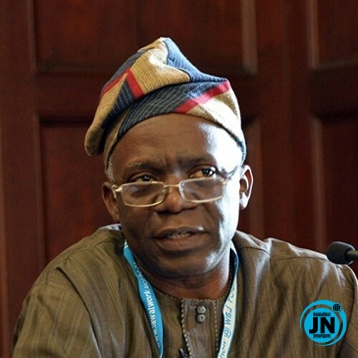Senior Advocate of Nigeria, Femi Falana, has shed light on why former President Umaru Yar’Adua annulled the sale of the Port Harcourt Refinery to a consortium led by business magnate Aliko Dangote. According to Falana, the reversal was necessitated by the failure of the transaction to adhere to due process and its potential implications for Nigeria’s national interest.
In a recent interview, former President Olusegun Obasanjo revealed that in 2007, a consortium offered $750 million to manage both the Port Harcourt and Kaduna refineries. However, the Nigerian National Petroleum Corporation (NNPC) rejected the proposal. Obasanjo also disclosed that Shell Petroleum Development Company declined an offer to take over the refinery due to concerns over corruption that could undermine its operations.

Falana, in a statement released on Friday, explained that the annulment was pivotal in addressing the legal and ethical violations tied to the sale. He argued that protecting Nigeria’s national interest and upholding the law were at the core of Yar’Adua’s decision. He further elaborated on the provisions of the Privatisation and Commercialisation Act, highlighting that the Vice President serves as the chairman of the National Council on Privatisation, which oversees the privatisation of public enterprises. However, Obasanjo allegedly bypassed this protocol by sidelining then-Vice President Atiku Abubakar and directly handling several privatisation deals.
Falana identified the consortium involved in the refinery purchase as Bluestar Oil, comprising Dangote Oil, Zenon Oil, and Transcorp. He also alleged that Obasanjo had acquired significant shares in Transcorp through “blind trust,” raising further concerns about the legality and morality of the transactions. Notably, these deals were completed during the final days of Obasanjo’s administration.
On May 17, 2007, Obasanjo sold a 51% stake in the Port Harcourt Refinery to Bluestar Oil for $561 million, and on May 28, 2007, a similar 51% stake in the Kaduna Refinery was sold to the same consortium for $160 million. These transactions sparked widespread criticism from various stakeholders, including the National Union of Petroleum and Natural Gas Workers (NUPENG) and the Petroleum and Natural Gas Senior Staff Association of Nigeria (PENGASSAN). The unions alleged that the deals undervalued the refineries and flouted due process, pointing out that the $561 million paid for the Port Harcourt Refinery was far below its estimated value of $5 billion.
The criticism culminated in a four-day nationwide strike in June 2007, which nearly crippled the economy. The unions demanded an investigation into the sales, leading the Federal Government to promise a review of the transactions. Subsequently, President Yar’Adua annulled the privatisation of both refineries.
Falana emphasized that the reversal of the sales went unchallenged in court because the transactions were widely regarded as violations of the Privatisation and Commercialisation Act. He concluded that the unions’ advocacy and Yar’Adua’s decisive action played a crucial role in safeguarding Nigeria’s resources and upholding the national interest.

